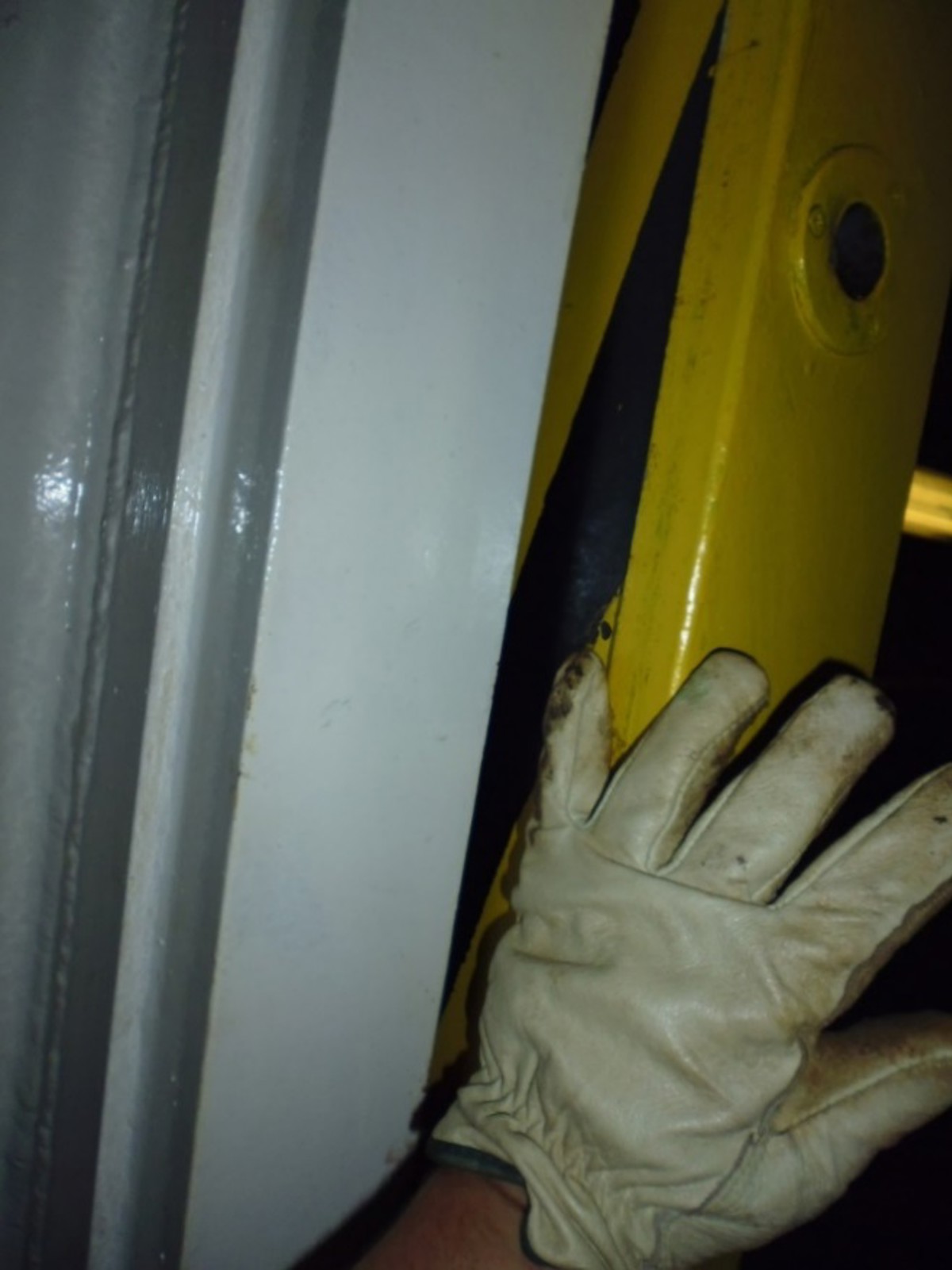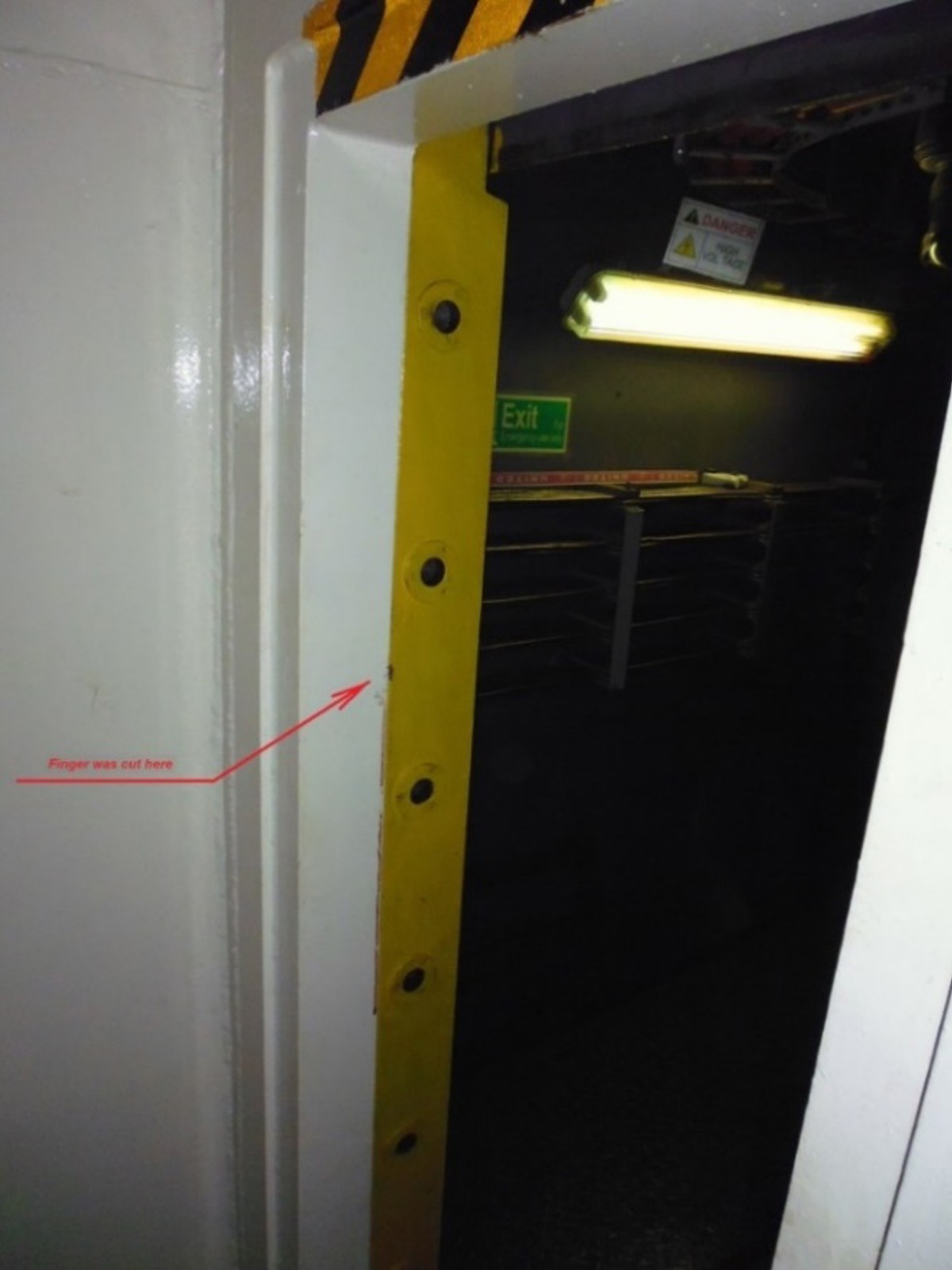Lost time injury (LTI): Finger injury – watertight sliding door
- Safety Flash
- Published on 15 January 2016
- Generated on 14 February 2026
- 3 minute read
Jump to:
A member has reported an incident in which someone got his finger caught in a watertight sliding door, leading to a serious injury.
What happened?
Third party subcontractor personnel were on board a vessel to assist during a sea passage. When they joined the vessel, and before they started work, these personnel received a full vessel induction and safety familiarization, in line with company procedures.
In the early morning hours of the following day, one of the subcontractors was passing through the watertight sliding door in the tunnel space. While the door was still moving open (with about 5-6 cm left to its final open position) the individual attempted to pass through the door. During this process, he placed his left hand on the doorpost. As he was passing through the door, the little finger of his left hand got caught between the doorpost and the opening face when the door slid into its final position.
Owing to the nature of the injury, the vessel had to be diverted to arrange for a medical evacuation. However, despite the best of medical efforts, the little finger of the injured person had to be amputated.
Our member’s investigation revealed the following:
- Operating instructions and cautions were in place in the vicinity of the watertight door.
- Audio and visual alarms were in good working order.
- The injured person had been fully briefed beforehand with regard to the proper use of watertight sliding doors.
The immediate cause of the incident was that the injured person made an improper effort to save time – whilst passing the watertight sliding door, he supported himself by placing his left hand on the still moving sliding door, which then trapped his finger.
Our member notes:
- Whilst sliding watertight doors are equipment which is very familiar to all seafarers, the operation of watertight doors needs to be carried out with the utmost care and attention.
- Undue haste can lead to taking shortcuts which in turn can result in injuries. As can be seen in this incident, the consequences of incorrect conduct with watertight doors can be severe.
- Familiarization training received should be followed and put to good use.
- This incident was highlighted to vessel crew and subcontractors, to reiterate for all who need to use the watertight doors, that they are fully familiar with their operation.
Related Safety Flashes
-
IMCA SF 01/01
1 January 2001
IMCA Safety Flashes summarise key safety matters and incidents, allowing lessons to be more easily learnt for the benefit of the entire offshore industry.
The effectiveness of the IMCA Safety Flash system depends on the industry sharing information and so avoiding repeat incidents. Incidents are classified according to IOGP's Life Saving Rules.
All information is anonymised or sanitised, as appropriate, and warnings for graphic content included where possible.
IMCA makes every effort to ensure both the accuracy and reliability of the information shared, but is not be liable for any guidance and/or recommendation and/or statement herein contained.
The information contained in this document does not fulfil or replace any individual's or Member's legal, regulatory or other duties or obligations in respect of their operations. Individuals and Members remain solely responsible for the safe, lawful and proper conduct of their operations.
Share your safety incidents with IMCA online. Sign-up to receive Safety Flashes straight to your email.

